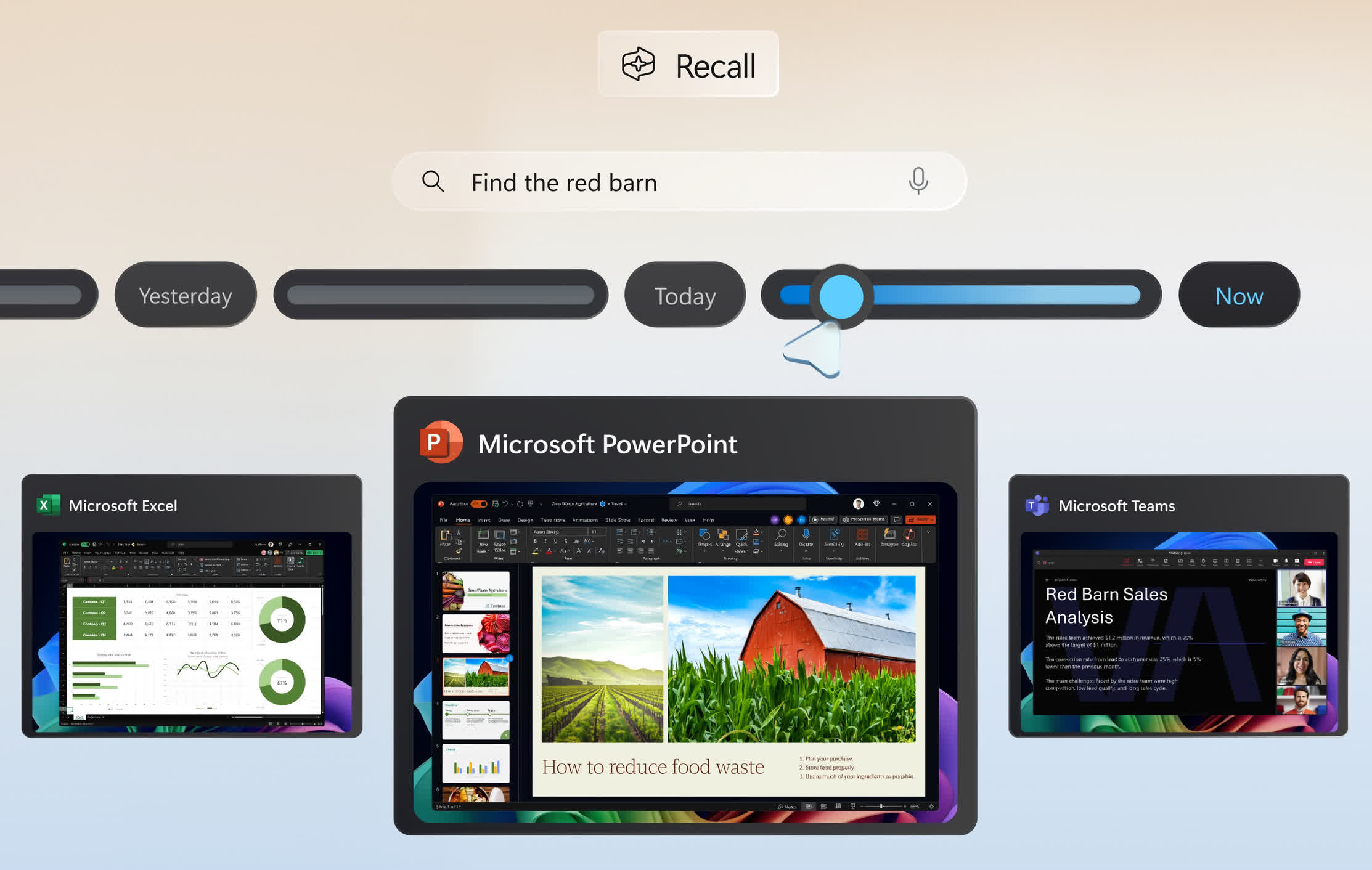The big picture: Since its announcement last year, Windows Recall has faced mounting criticism from privacy experts who have labeled it a potential surveillance tool – despite Microsoft's assurances of airtight security. Now, some developers are taking matters into their own hands, leveraging built-in Windows features to shield users from what many advocates view as a serious intrusion into personal privacy.
Signal was one of the first apps to block Windows Recall from capturing screenshots of its interface, and more developers have since followed suit. This week, both Brave and AdGuard announced similar measures to shield users from what they describe as unwanted surveillance by Microsoft.
AdGuard warned that Microsoft's portrayal of Recall as a "privacy-friendly" feature is misleading, citing the limitations of traditional safeguards like PINs and content filters. PINs, they argue, are easily compromised, while filters can fail to catch certain types of sensitive data.
Calling the feature "unsettling," the developers noted that screenshots of private chat windows could inadvertently expose personal information, raising concerns about both user privacy and the risk of financial fraud. In their view, the only reliable way to protect against these risks is to disable Windows Recall entirely.
Your browsing isn't private if Windows 11 is taking screenshots of everything you do.
– Brave (@brave) July 22, 2025
Brave will block the controversial feature Microsoft Recall by default with our v1.81 update. pic.twitter.com/LngV4SDjAy
Earlier this week, the makers of the privacy-focused Brave browser announced that Windows Recall will be blocked from capturing screenshots of Brave windows by default, marking a new step to protect user privacy. According to a post on the company's GitHub page, Brave developers are leveraging Microsoft's SetInputScope API to disable the controversial feature.
While Recall already refrains from screenshotting private browsing sessions, Brave is going further by designating all browser windows as private. This approach prevents Windows from recording any browsing activity, regardless of whether it's in incognito mode or not.
For those unfamiliar, Windows Recall automatically captures screenshots of active windows every few seconds on supported Windows 11 PCs. Microsoft pitches it as a productivity tool designed to help users retrace their digital steps, but critics say it's a privacy nightmare in disguise. The feature has drawn sharp backlash for potentially exposing sensitive information, including passwords, health records, private chats, and financial details.
Following public outcry, Microsoft delayed the rollout and promised stronger safeguards. The company also enabled third-party developers to block Recall using either the SetInputScope API or a Digital Rights Management flag – loopholes that developers like Brave and AdGuard are now using to insulate their users.
